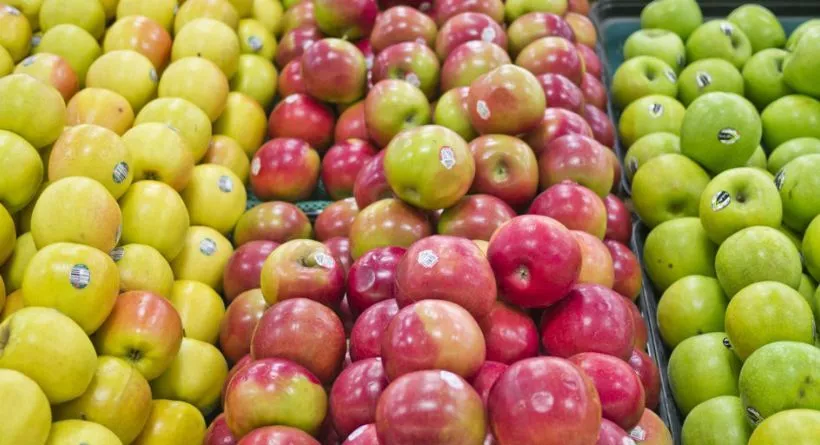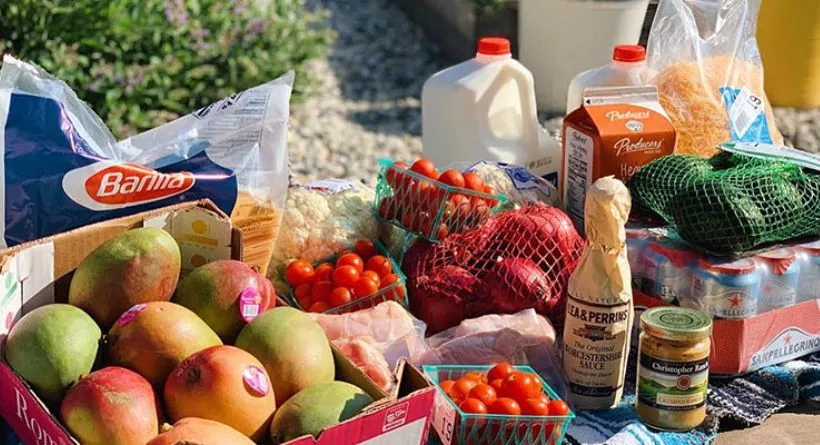Navigating the vast, bustling landscape of food suppliers is a common issue you as a restaurant owner often face. It’s a problem we completely understand, and one we acknowledge needs a definitive solution. Ensuring a reliable, cost-effective, and high-quality supply chain for your restaurant can be a daunting task, but it doesn’t have to be. We’re here to demystify the process, providing you with a robust solution that can streamline your procurement process.
By giving you an overview of the finest food suppliers for restaurants, we’re setting the stage for your success. Our comprehensive guide offers a solution that can not only help you understand the market but also enables you to make the most informed decisions based on your restaurant’s unique needs.
Also Read: A Paranormal Encounter: My Unforgettable Meeting with Spiro Agnew’s Ghost
This can be an overwhelming problem, especially when your restaurant’s reputation, quality, and consistency rely heavily on your choice of food suppliers. But don’t worry, we’re here to alleviate that pain point by taking you through the crucial factors to consider and tips to find the best food suppliers, ensuring you’re well-equipped to tackle this challenge head-on.
Understanding the Food Suppliers’ Landscape
When running a restaurant, you’ll encounter various types of food suppliers. Let’s break them down. Broadly, they are divided into three types: local, regional, and national. Local suppliers tend to offer farm-fresh produce, giving you the benefit of seasonal fruits and vegetables. Regional suppliers serve a larger area, offering more variety but may lack in terms of local produce. National suppliers, on the other hand, are your large-scale food providers. They come with a wide assortment of options, albeit at the cost of local freshness.
The role these food suppliers play is paramount. They provide everything, from fresh produce to canned goods, meat, dairy, and even beverages. Hence, understanding their operations and capabilities becomes key to running a successful restaurant.
Importantly, your choice of food suppliers could be the difference between success and mediocrity. It’s not just about the food on the plate. It’s about the service, the consistency, and the overall experience that your customers receive.
Decoding the Traits of Reliable Food Suppliers
So, what should you look for in food suppliers? First and foremost, quality. The food you serve must meet the highest standards of freshness and taste. Look for suppliers who are meticulous about their product sourcing and storage. Remember, superior quality ingredients are the stepping stones to a delightful dining experience.
Consistency in delivery and service is another crucial factor. Imagine running a special promotional night and your food supplier fails to deliver on time! Hence, reliability is key. A good food supplier will always honor their delivery schedules and service commitments. They act as the backbone of your restaurant, ensuring a steady supply chain.
Also Read: Understanding HQPotner: A Comprehensive Guide
Lastly, let’s talk about cost-effectiveness. High quality doesn’t always have to mean high cost. Balancing quality and price is an art that successful restaurant owners master. It’s about finding a supplier who delivers quality products at competitive prices. Be cautious, though, of suppliers who compromise on quality for the sake of price. In the restaurant business, that’s a recipe for disaster.
To sum up, understanding the food suppliers’ landscape and discerning the traits of reliable food suppliers are essential first steps in ensuring your restaurant’s success. Armed with this knowledge, you’re on your way to building a solid foundation for your business.
Steps to Finding the Right Food Suppliers for Your Restaurant

Initiating your search for the right food suppliers involves careful planning and consideration. Start by researching potential suppliers. Analyze their offerings, delivery terms, and reputation in the industry. Online reviews and industry peers can be valuable sources of unbiased information.
It’s vital to review sample products from your potential suppliers. Samples give a first-hand look at what to expect. They allow you to gauge quality, freshness, and consistency firsthand. Remember, these samples represent what will ultimately reach your customers.
Next comes negotiation. Successful business involves finding the right balance. The balance between quality, service, and price. Be prepared to discuss these elements with your potential food suppliers. Understanding their terms and negotiating a deal that works for both parties is key.
Maintaining a Healthy Relationship with Your Food Suppliers
Once you’ve selected your food suppliers, fostering a healthy relationship with them becomes crucial. Effective communication is the cornerstone of this relationship. Regularly liaise with your suppliers, ensuring that all expectations and requirements are clearly understood.
Remember, mutual respect and understanding form the basis of any successful business relationship. Understand the challenges and constraints your food suppliers might face. Similarly, make sure they understand your operations and needs.
Aim for long-term partnerships with your suppliers. A lasting relationship benefits both parties. It ensures a stable supply chain for your restaurant and regular business for your suppliers. Moreover, long-term partnerships often lead to better understanding, improved service, and potential discounts.
Conclusion
Navigating the world of food suppliers can indeed seem like a daunting task, but with the right knowledge and approach, you can turn this challenge into a major strength for your restaurant. Remember, understanding the landscape of food suppliers, knowing what traits to look for, researching potential suppliers, reviewing their samples, and effectively negotiating terms are the keys to selecting the right partner for your business.
Moreover, establishing and maintaining a healthy relationship with your chosen food suppliers is equally crucial. Regular communication, mutual understanding and respect, and long-term partnerships form the foundation of this relationship. Your efforts in these areas can yield substantial dividends, in the form of consistent quality, reliable delivery, and potentially even cost savings.
In closing, let’s reiterate that your choice of food suppliers plays a fundamental role in your restaurant’s success. It impacts everything from the meals you serve to the overall customer experience. So, choose wisely, communicate effectively, and build those lasting partnerships. We believe in you and your restaurant’s potential to create amazing dining experiences, and we’re confident that with the right food suppliers by your side, you’ll achieve just that.
Frequently Asked Questions
1. What types of food suppliers are there for my restaurant?
2. What should I look for in a food supplier?
3. How can I maintain a healthy relationship with my food suppliers?
4. How does my choice of food suppliers impact my restaurant?
5. What is the Most Important Factor in a Food Supplier?
6. What is a Food Supplier?
7. What are the Types of Food Vendors?
Local Suppliers: These vendors offer locally grown or produced goods. They’re great for restaurants focusing on fresh, farm-to-table type menus.
Regional Suppliers: Serving a larger area, these vendors offer a more extensive product range but may not provide the same level of local produce as local suppliers.
National Suppliers: These are large-scale providers catering to clients across the country. They offer a vast assortment of products but may not have the local touch of smaller suppliers.
Specialty Suppliers: These vendors provide specialized ingredients that might be difficult to find elsewhere. For instance, they might supply exotic fruits, gourmet cheeses, or specialty meats.
Broadline Suppliers: These are one-stop shops for restaurants, providing a wide range of products from food items to kitchen equipment.
Understanding the types of food vendors and their offerings is key to selecting the right ones for your restaurant’s specific needs.

